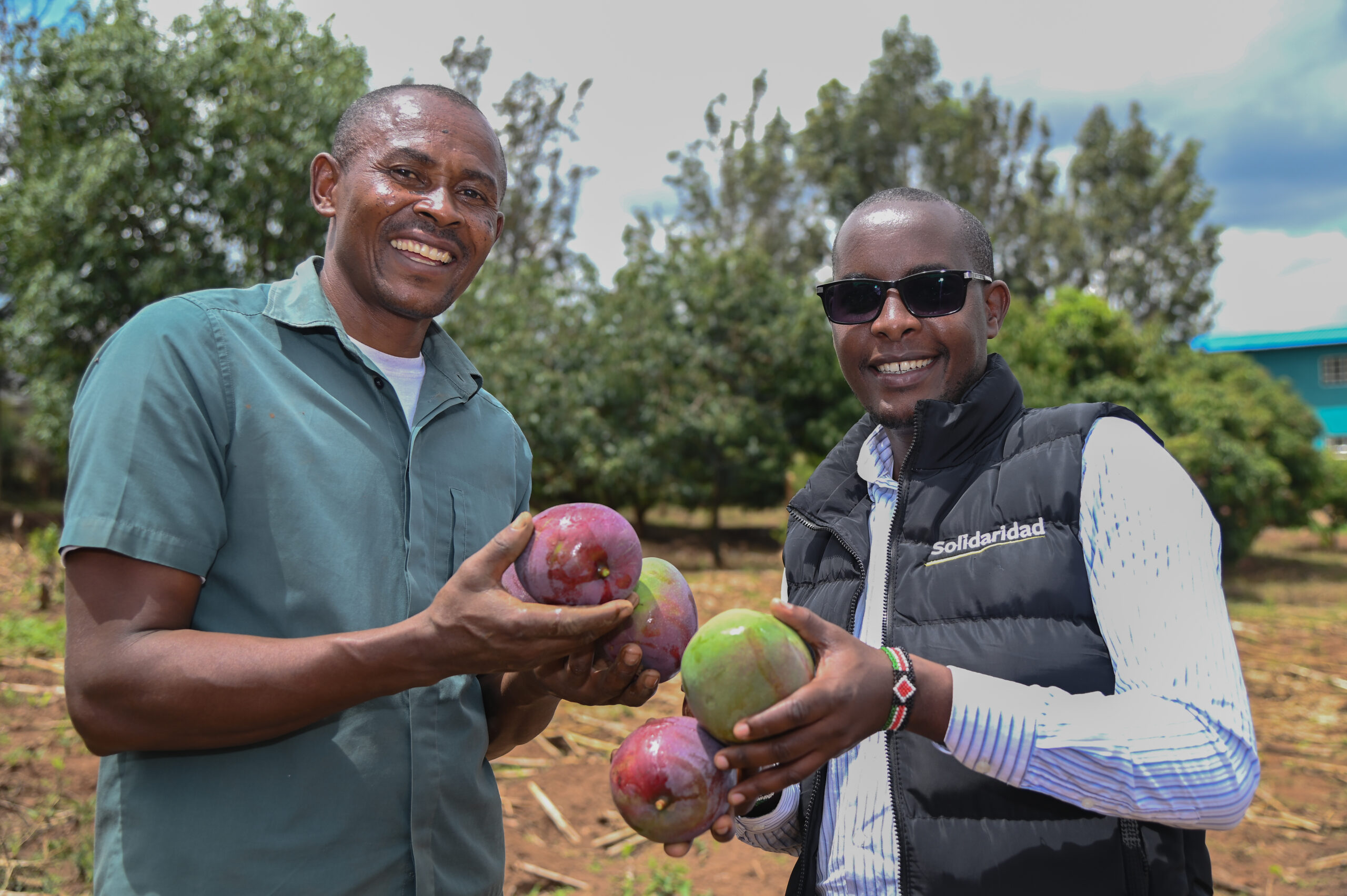Highlights
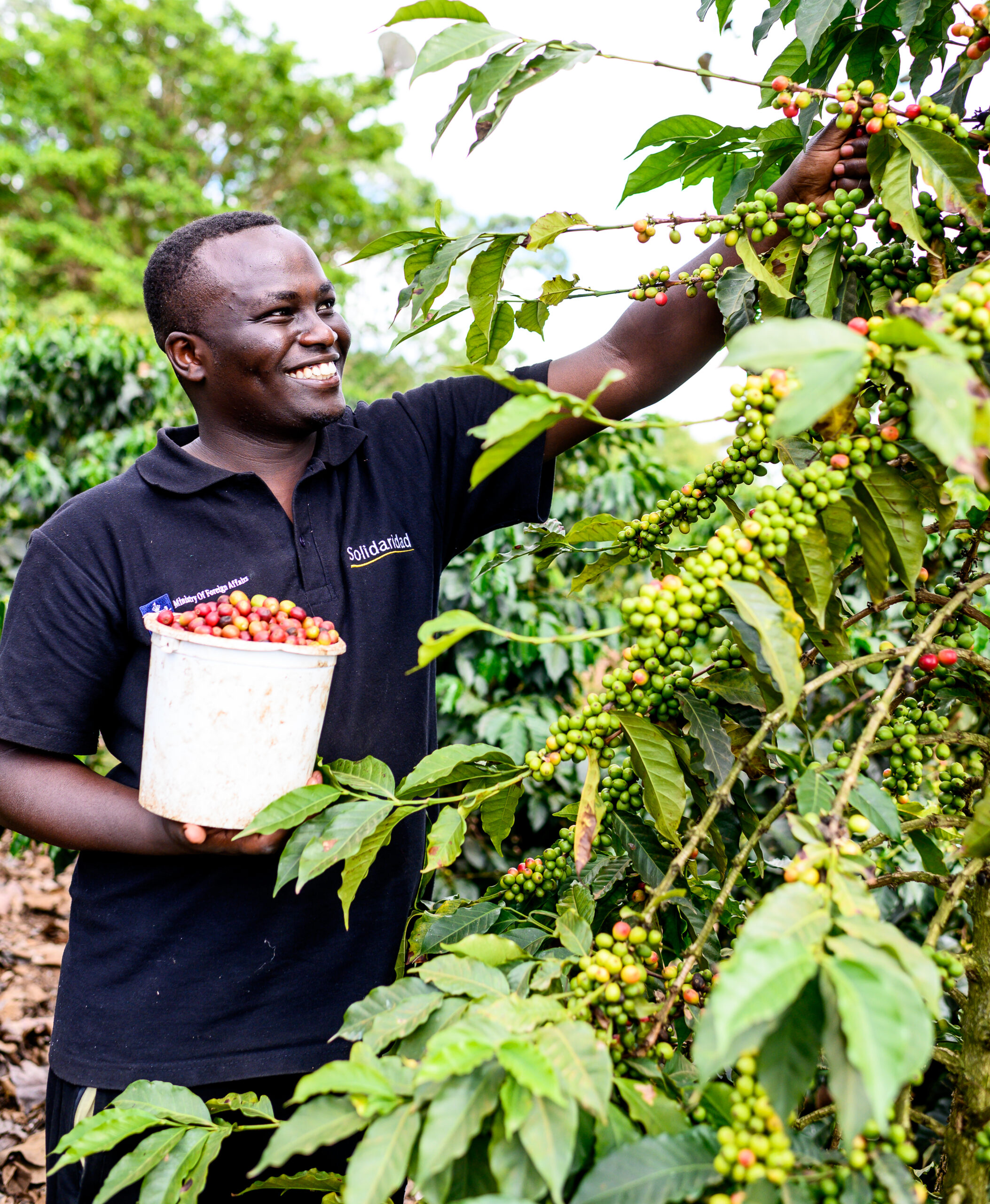
107,850 coffee, tea, and food products farmers achieved on average a 16.5 percent increase in production. The improvement was related to the extensive adoption of good agricultural practices (encompassing crop nutrition, pests and disease control, soil and water management) coupled with improved access to last-mile services, such as training, quality inputs, and financial assistance. The increase in production translated to better household incomes, and food- and nutrition status.
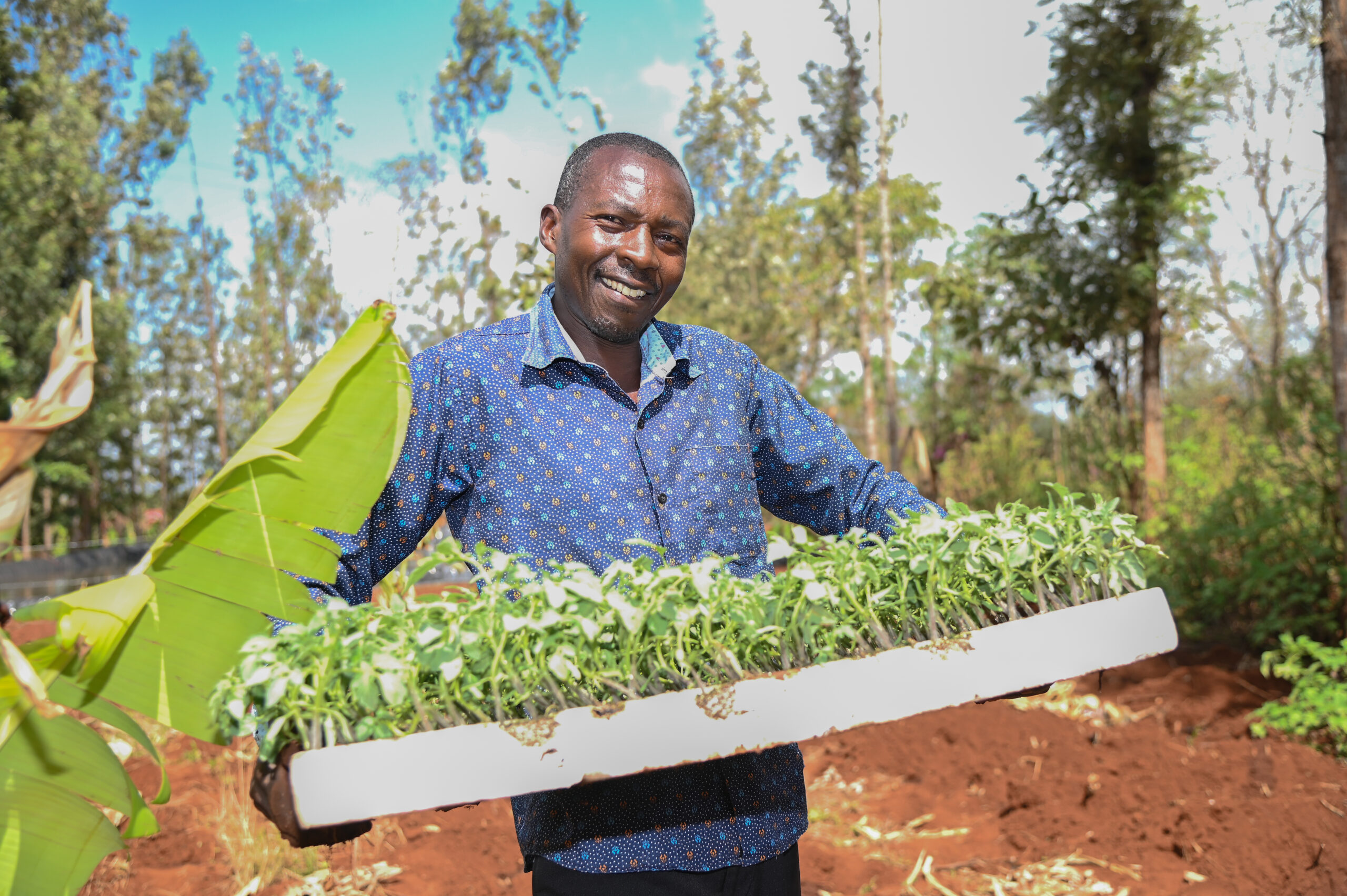
In Kenya, Tanzania, and Uganda, sustainable land management practices were applied to 149,000 hectares of land, cultivating coffee, tea, horticulture, grains, and pulses. Farmers in these regions adopted a minimum of three sustainable practices to enhance their agricultural production
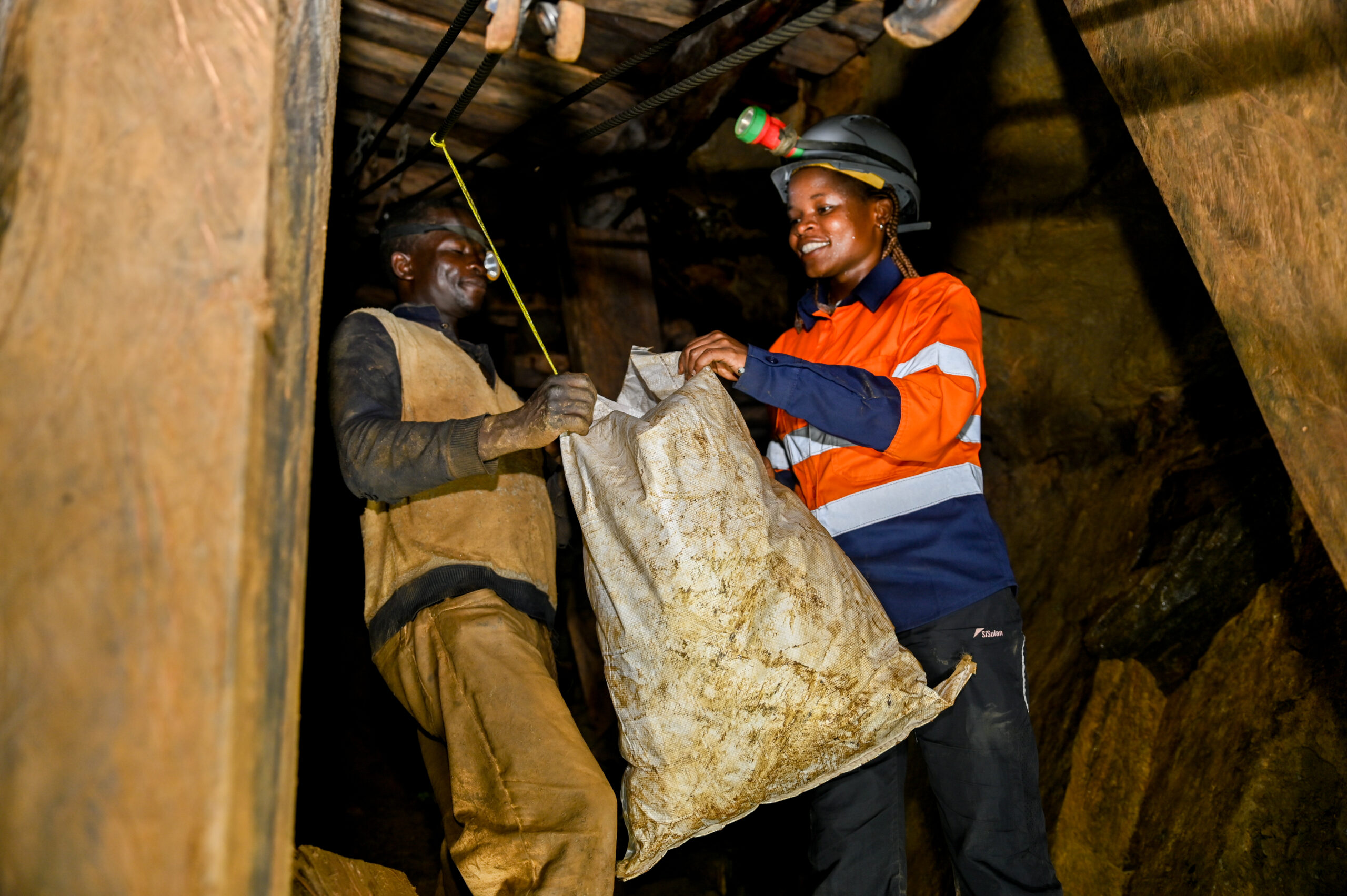
75,126 farmers and 1,000 miners were able to access quality services through ongoing institutional capacity building for farmer and miner organizations. We worked with cooperatives and dairy hubs, and established connections with input and service providers (e.g. agro-dealers, equipment suppliers, nurseries, and financial institutions), as well as with community-based service providers like spray service providers.
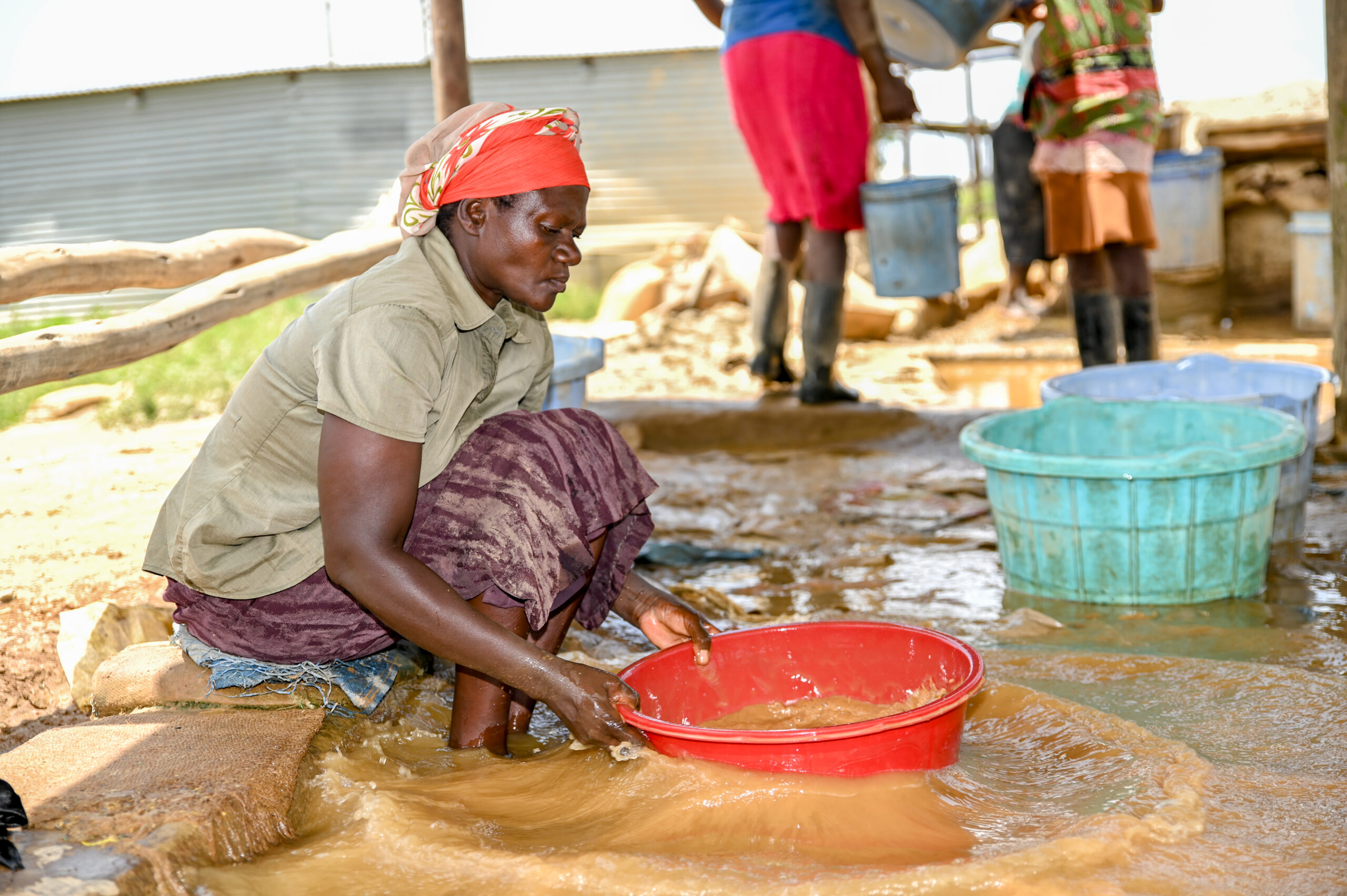
In the gold, leather, and textiles sectors, the number of workers and miners operating under improved working conditions exceeded targets, reaching 840 workers (a 125 percent increase) and 1,300 miners (a 162 percent increase). The improvements in working conditions were attributed to continuous training and promotion of occupational health and safety (OHS), as well as compliance with various national and international labour and human rights regulations.
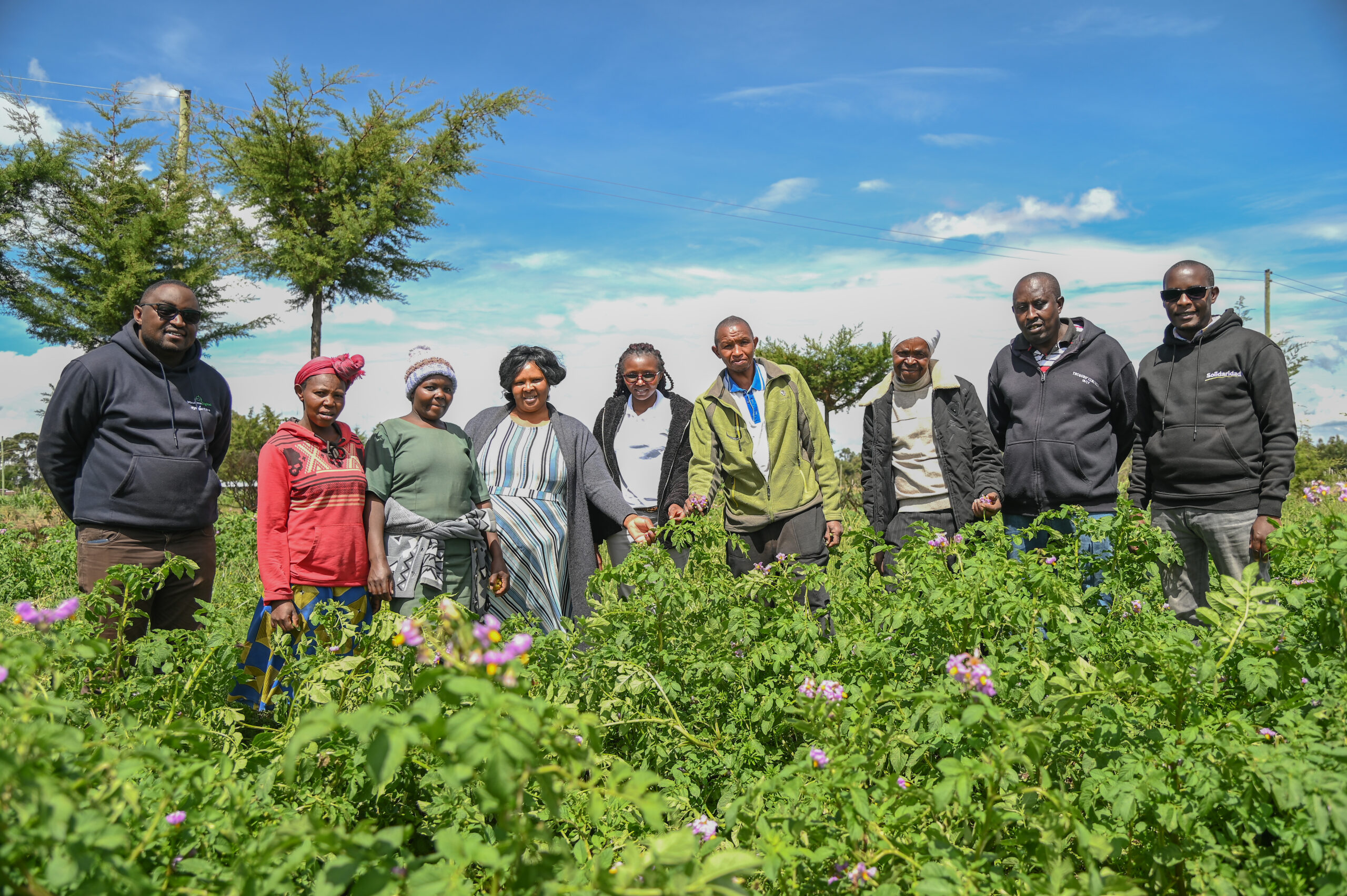
43 civil society organisations (CSOs) were empowered with advocacy and lobbying skills enabling them to make substantial contributions to policy influence processes. The CSOs received support in generating evidence for engagement with policy- and decision makers, and were facilitated to participate in regional and international sector dialogues.
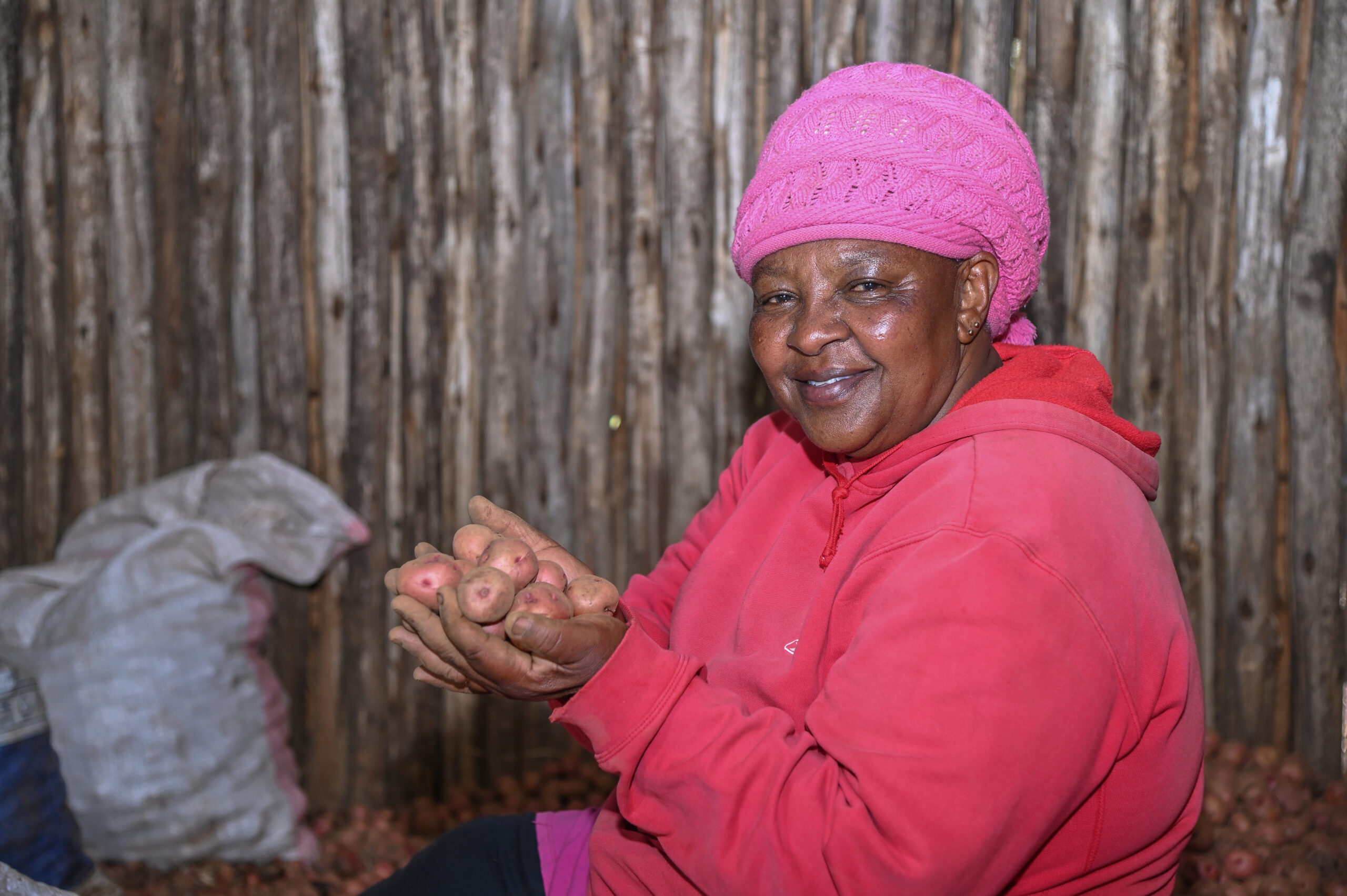
17,300 individuals and consumers were inspired to buy sustainably produced commodities such as coffee, cotton, gold, horticulture, leather, and textiles through both local and international consumer campaigns. Additionally, producers received support to participate in local and international exhibitions and forums, to enhance awareness and attract buyers, thereby boosting the visibility and appeal of sustainably produced goods.
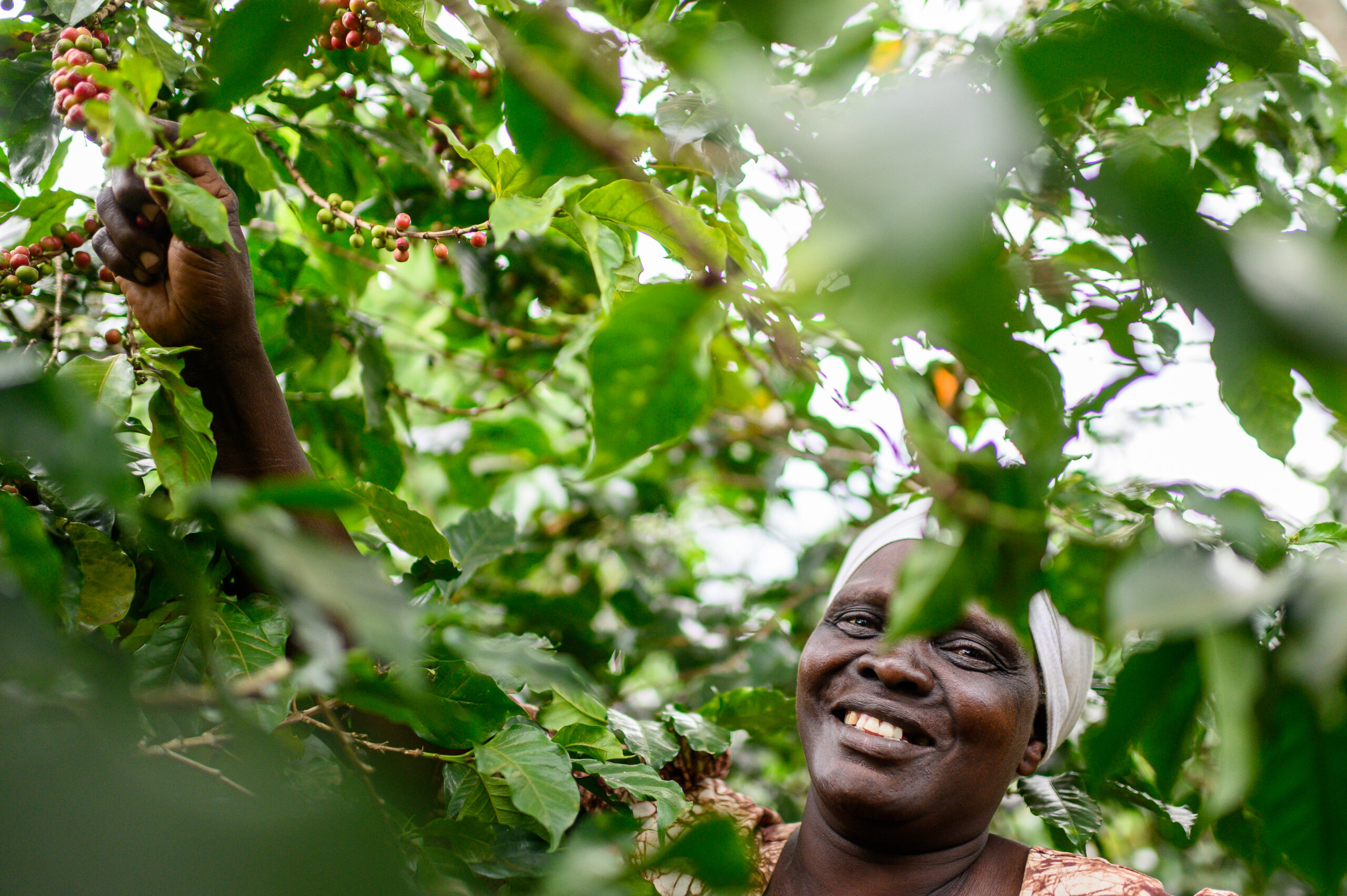
44,090 tonnes of carbon dioxide equivalent per year (tCO2e/year), was sequestered and successfully sold through the ACORN carbon marketplace, generating a total of EUR 1,234,520 of (expected) payments for farmers.
Results
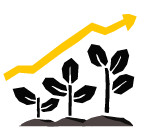
107,850
farmers with improved yield (kg/ha)

148,857
hectares under good agricultural practices

76,151
Farmers and miners with access to improved services
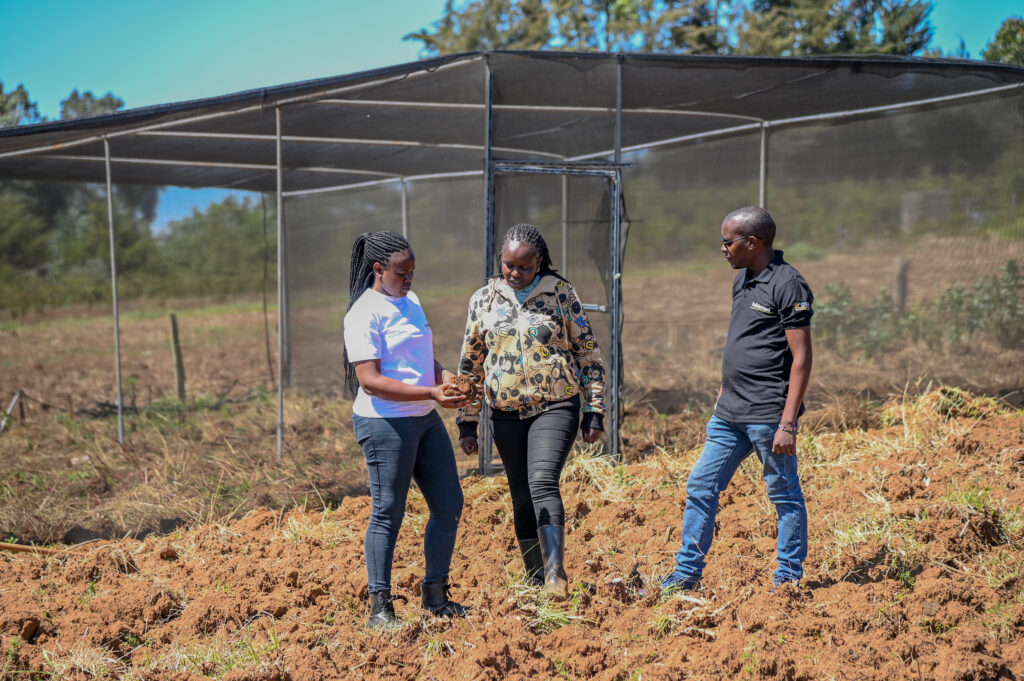
Our work
ENABLING PRODUCERS TO ACHIEVE SUSTAINABLE GROWTH
Below are the highlights of our efforts and milestones towards equipping producers with knowledge and skills on sustainable production practices, inclusive service delivery, driving market access and policy reform to foster long-term productivity, profitability and inclusivity. Our initiatives propelled producers towards global standards and market excellence while shaping a sustainable future through education, innovation and impactful partnerships.
In 2023, farmers, workers, miners, and their associations were equipped with knowledge and skills on regenerative agriculture practices, carbon trading, decent working conditions, occupational health and safety, labor regulations, personal protective equipment use, resource-efficient manufacturing practices, waste and water management, leadership, governance and marketing. These interventions have led to improved yields and incomes, and the creation of 262 employment opportunities for including young people and women. This included opportunities for youth-led enterprises, nursery operators, spray service providers and internal auditors. Additionally, the producers’ internal capacity for decision-making and policy engagements has been enhanced.
Miners and workers were equipped with knowledge and skills on sustainable mining practices and other cross-cutting topics in line with the ESG impact escalator criteria. This led to improved mining operations and production, safety in the mines, access to geological data, and equipment for miners and workers. Specifically, mines made notable strides towards improving the working conditions of workers by implementing occupational health and safety measures.
In the tanning and textile industries, our initiatives promoted innovative green tanning technologies, the creation of safe and decent working conditions, and the implementation of occupational safety and health measures. Employees’ awareness of safeguarding issues to protect their well-being and that of the surrounding communities was created or increased.
Solidaridad invested in interventions aimed at building the capacities of farmer groups/cooperatives, mining associations as well as trade unions. Our targeted initiatives operationalized and/or strengthened the producer cooperatives and associations who in some cases employed more skilled labor including women and youth. In addition, Solidaridad provided modern equipment and technologies to producer organizations, resulting in improved efficiency, operation costs, processes, and quality.
We also supported the professionalization of Small and Medium Enterprises, for example, the Shoe Master, a worldwide shoe design application, was introduced through the Virtual Design Studio, integrating various processes including design, engineering, and production. The technology reduced the time needed for designing and creating patterns, accomplishing these tasks within just an hour. Mr. Gervas Zacharia, one of the Tanzania SME representatives, mentioned that previously, ”it took him an entire day to design a single shoe but with the new technology, we now design multiple shoes within hours and swiftly share them with clients.” We also created linkages to service providers and markets such as Tanzania Agricultural Development Bank, National Microfinance Bank, Kenya Commercial Bank, Equity Bank, Cooperative Bank and Rabobank Foundation. Across our commodities, we connected farmers to established supermarkets as well as local markets. In Tanzania, for example, the farmers who have been certified on Global G.A.P. are reaching a wider market, while in Uganda we set up village supermarkets for the grain and pulses value chains.
Through our RECLAIM Sustainability! programme, we enhanced producers’ influence in decision-making processes, fostering their engagement with policymakers. This was achieved through strengthening associations, unions, and civil society organizations and training on lobbying and advocacy. As a result, the producers successfully made contributions to policy development, with drafted recommendations endorsed by sector players.
Solidaridad also facilitated the establishment and/or operationalization of sector multi-stakeholder platforms (MSPs) at the local and national levels. In commodities like tea, coffee, gold and food products representatives from diverse interest groups within the sectors collectively addressed challenges, and opportunities, formulated policy actions and devised advocacy strategies. At the national level, consultative meetings were held with policymakers and enforcers in the mining sector, rallying them to invest in geological data and provide the existing data to the miners through different channels including the mining cadastre.
In Kenya, Solidaridad supported the development of the KS1758 training guide and implementation guidelines, paving the way for the implementation of the standard by producers. Additionally, Solidaridad supported Meru County in drafting a five-year county potato strategy. In Uganda, the national horticulture strategy was developed and recommendations on the mining policy were developed and submitted to the Ministry of Energy and Mineral Development’s Directorate of Geological Survey and Mines for consideration.
In Ethiopia, we facilitated and supported the development of an instrumental curriculum document (TTLM) on solid waste management and the conversion of solid waste into valuable products. A five-year strategy was developed for the Industrial Federation of Textile, Leather, and Garment Workers’ Trade Unions to serve as a roadmap for them to advocate for decent work, workers’ rights, and the minimum wage. Media campaigns were also conducted through radio and TV stations with a focus on pertinent issues like decent work, gender, and environmental waste management to educate citizens and stimulate them to take action.
To enable more farmers to meet the market requirements and attract competitive prices, we supported 6 tanneries, 23 mining associations and 210 cooperatives in their efforts to adopt and comply with market standards, which would potentially give them access to European markets. This has contributed to increased market access opportunities and better prices contributing to improved incomes and quality of life. Interest in organic production has influenced manufacturers of pesticides to develop organic inputs while some local agro vets in the project areas choose to only stock products that are certified for organic production.
Solidaridad also facilitated business-to-business forums and match-making sessions to link producers with local and international buyers. We facilitated the Kenya Coffee Directorate’s participation in the 2023 Specialty Coffee Association Expo to improve visibility and secure new markets for Kenyan coffee. The Kenya Coffee Producers Association (KCPA), Kenya Coffee Platform (KCP) and Kapchorwa Civil Society Organizations Alliance (KCSOA) were facilitated to participate in the African Fine Coffees Association (AFCA) conference to improve visibility, share value distribution findings, and secure new markets for Kenya and Uganda coffees. In Uganda, we secured forums for coffee entrepreneurs to network and foster knowledge and skills transfer on coffee products and by-products. In addition, two women and four youths were given support to participate at the Harvest Money Expo to gain knowledge and skills in value addition.
Solidaridad also organized farmer field days as platforms for promoting inclusive markets and enhancing agricultural value chains. The events facilitated direct linkages with local input suppliers and established market connections with reputable entities. In tea, coffee, and food products value chains, we developed market information systems for sharing market information with stakeholders to improve transparency in the sectors, and bargaining power for the stakeholders. We also assisted farmers to learn how to use those systems to their benefit.
Change stories
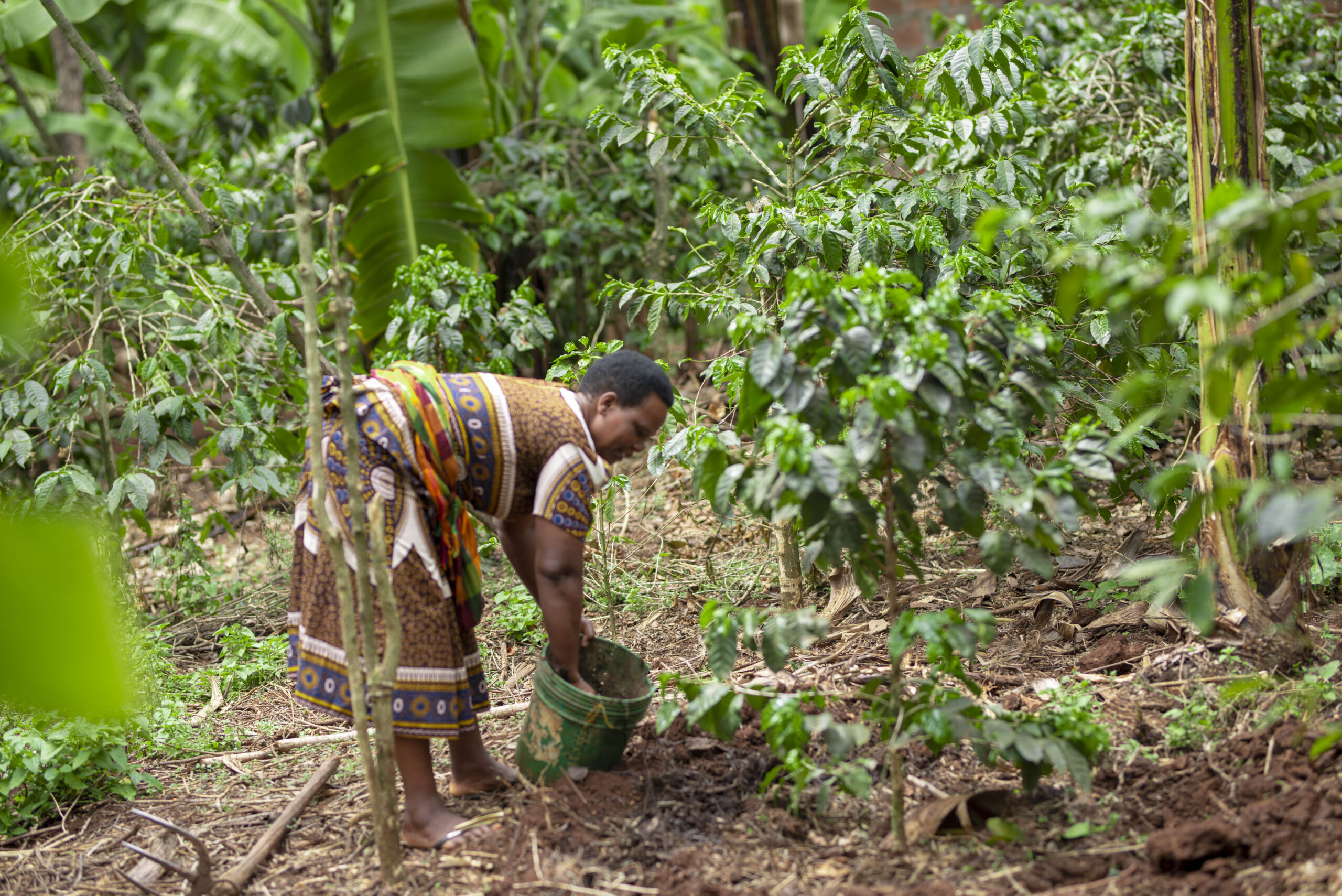
A BRIGHT FUTURE FOR A WOMAN FARMING COFFEE
IN TANZANIA
Dorothy Masaki is a 54 year-old wife and mother of six who began farming over 35 years ago as a young woman working on her father’s farm with her parents and her siblings. After years of hard work Dorothy joined Solidaridad’s Practice for Change: Coffee Resilience Programme in East Africa, and the success of her coffee farm is leading to new opportunities for herself, her family and her friends.
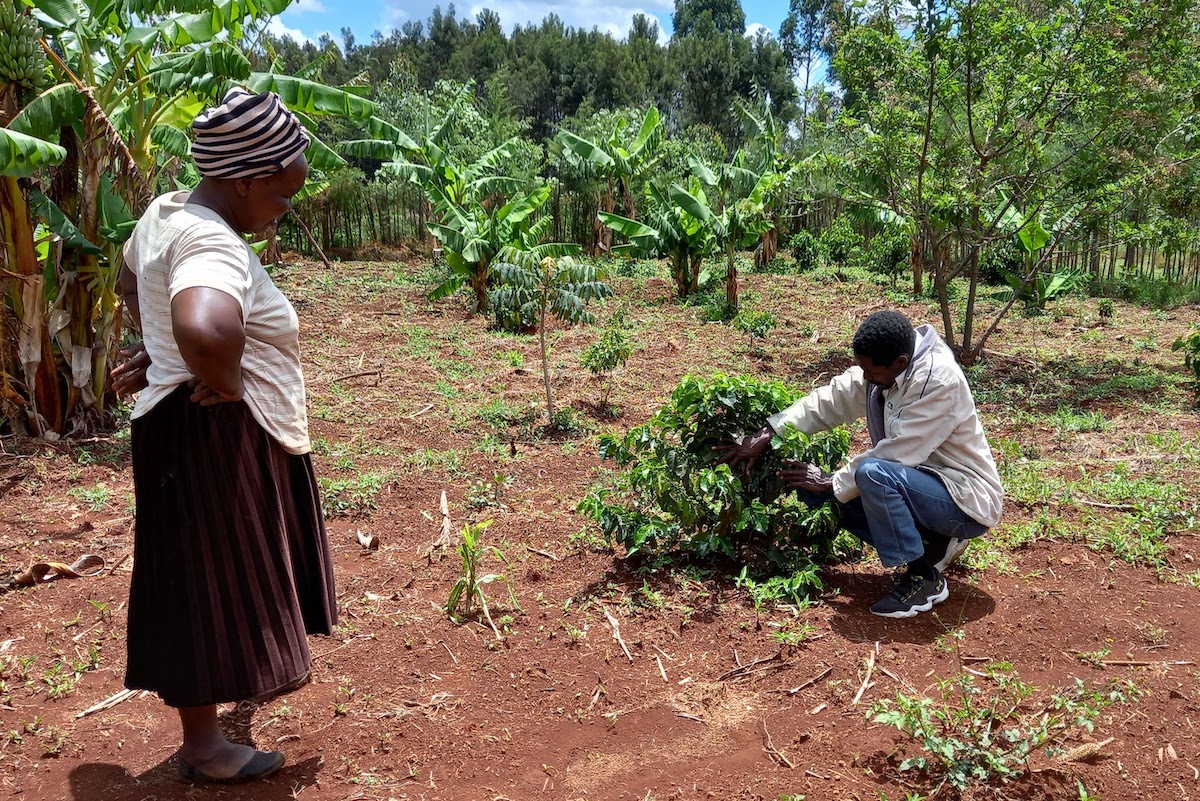
YOUNG FARMERS IN KENYA MAKING A BUSINESS CASE FOR COFFEE
Sustainable coffee can be a lifeline for young women and men throughout Kenya, Uganda, and Tanzania. To jump-start economic growth and increase coffee production, Solidaridad is working in Kenya, Tanzania & Uganda to help women and young farmers succeed in business and on the farm.
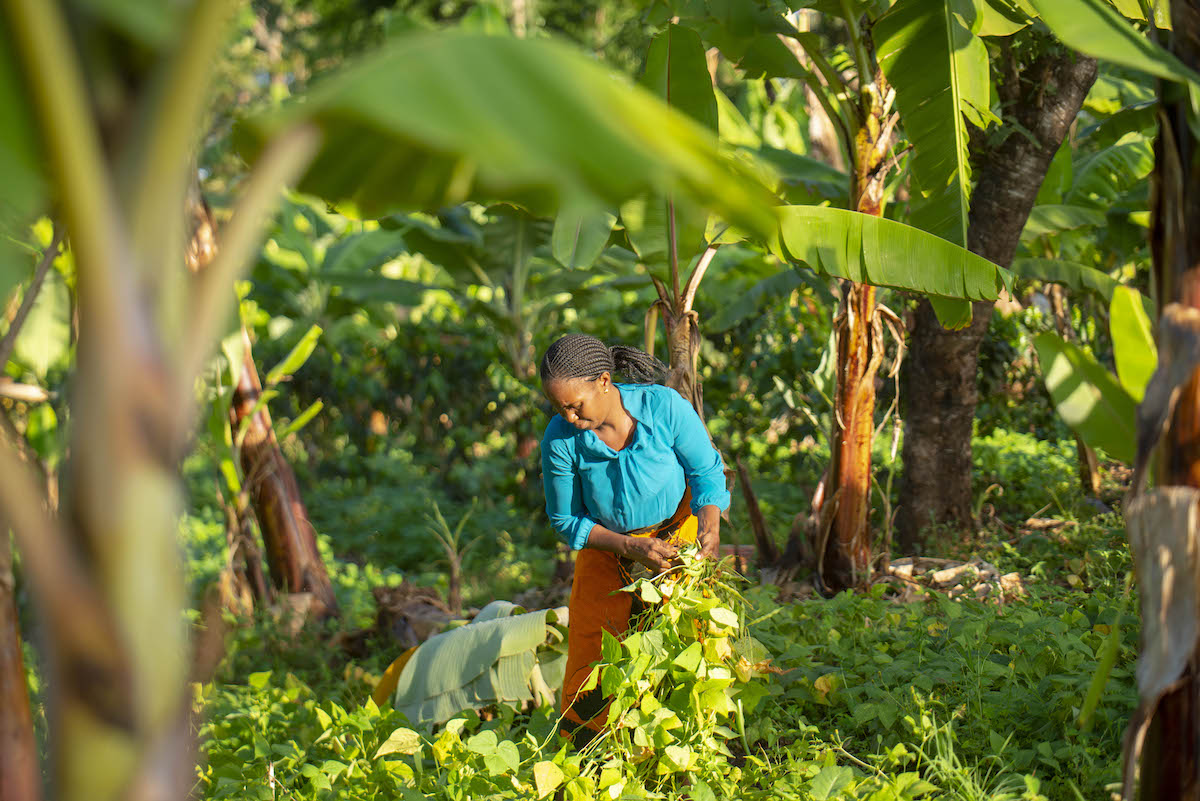
RURAL WOMAN COFFEE FARMER LEADS THE WAY IN TANZANIA
For many rural women, building a successful business can be a struggle due to limited access to resources. Suzan Malya, a coffee farmer in Tanzania, overcame challenges to turn her farm into a dynamic small business that provides a vibrant future for her family. Now she serves as an example to others in her community.
Results per commodity
Towards more sustainable value chains
Measurable impact in 7 commodities
Our growing portfolio provided us with the opportunity to design projects that respond to the emerging needs of producers in our target supply chains. Our new projects integrate a strong focus on climate change (mitigation, adaptation & resilience), food security, better incomes for downstream actors, sustainable livelihoods, advocacy and lobbying, and inclusivity interventions all of which are critical drivers of producers’ and communities’ enhanced adaptive capacities and resilience.
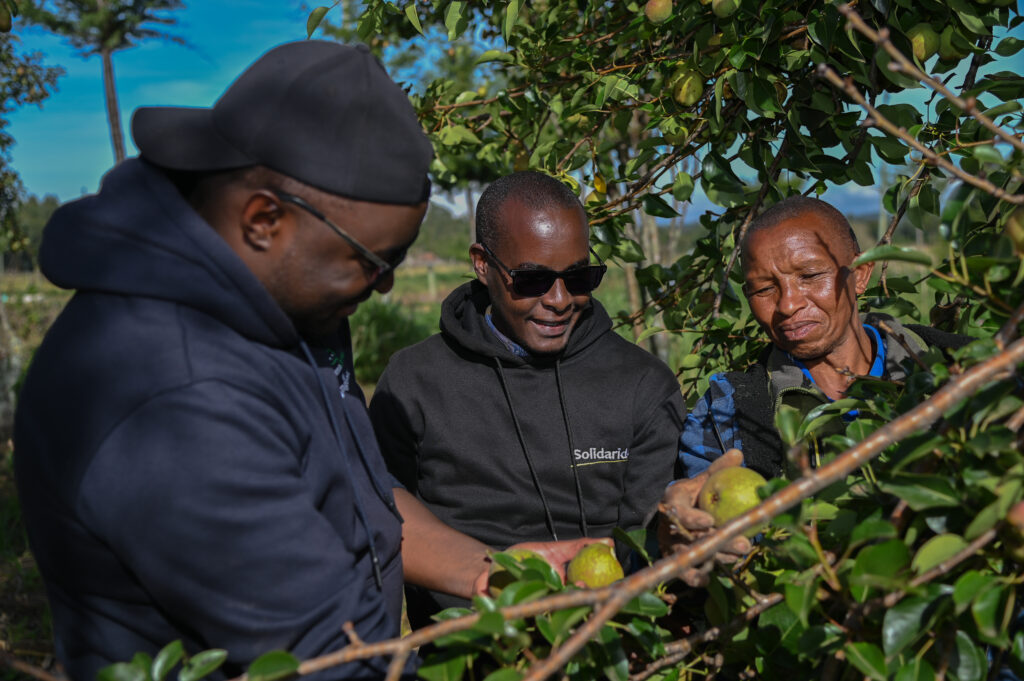
In 2023, the cotton, textile, and apparel programme provided training in advocacy, leadership skills, and the creation of Collective Bargaining Agreements (CBAs) for local CSOs and private sector associations. With a strong emphasis on gender equality, our interventions ensured that 80 percent of the 3,791 trained members were female. Additionally, 30 gender champions received training to advocate for equal pay, implement anti-sexual harassment measures, and promote women’s empowerment. Our activities had a significant impact, reaching 1,819 workers directly while indirectly benefiting 15,000 individuals. A highlight of the year was a multi-stakeholder workshop focused on transforming cotton and textile waste into valuable products. Furthermore, our teams played a crucial role in the development and approval of the contract farming proclamation, which aimed at boosting the market for organic cotton and ensuring fair pricing and incomes for farmers. The project beneficiaries participated in various events, including the regional cotton multi-stakeholder workshop in South Africa and the Africa Sourcing Fashion Week in Ethiopia, improving visibility, networking opportunities and market uptake.
In Ethiopia, 15 industrial experts (including 12 women) participated in a trainer-of-trainers programme focused on managing tannery solid waste. A training and learning module and curriculum were created and adopted by 38 leather training institutions. The launch of a specialised short-term course in tannery solid waste management at Modjo TVET College represents an exciting opportunity for local youth. Small and medium enterprises were connected with machinery and spare parts suppliers and received support to develop their branding assets. Efforts to improve tanneries’ certification processes, establish occupational health and safety standards, and form grievance-handling committees have been successful. Distributing personal protective equipment to five beneficiary tanneries was a vital step towards ensuring employee safety. Additionally, training of tannery experts on chrome-free tanning techniques signified a push towards sustainable processing practices. In Tanzania, the introduction of solar-powered drums and the reduction of mimosa usage have notably increased the efficiency of leather tanning. Cross-learning (learning with and from others) and training in green tanning technology, plus other revenue-generating activities have not only supported small and medium tanning enterprises but also empowered women in the local community to take up vegetable farming, contributing to their economic independence.
In 2023, Solidaridad inaugurated its pioneering oil palm initiative in East Africa: the National Oil Palm Project (NOPP) in Uganda. The project training targeted 56 participants involved in the oil palm sector, including officials employed by the project, district agriculture and natural resource officers, and farmer leaders. The training covered the Roundtable on Sustainable Palm Oil Standard (RSPO), best management practices, and climate-smart agricultural techniques. It further aided participants in designing and submitting oil palm agroforestry plans to the ACORN platform, facilitating farmers’ entry into carbon market opportunities. Collaborating with UNESCO and the Uganda Museum, Solidaridad also engaged 35 representatives from the project, including district community development and tourism officers, as well as delegates from the Buganda and Busoga kingdoms. This training focused on cultural heritage sites, aiming to assist in the mapping and profiling of significant sites and the creation of management plans. This effort underscores the importance of preserving cultural heritage while promoting sustainable agricultural practices.
Solidaridad’s local food systems programme in East Africa has significantly enhanced the livelihoods of farmers and advanced sustainable agricultural practices. Engaging about 60,000 farmers across Ethiopia, Kenya, Tanzania and Uganda in 2023, our teams contributed to heightened food production and enhanced food safety. Collaborations with private entities, such as Louis Dreyfus Company and Uganda Nile Breweries, have led to the procurement of over 17,000 metric tonnes of grains, valued at approximately 4 Million euros. Through Solidaridad’s commitment to voluntary sustainability standards, 7,000 horticulture farmers have received training, with 2,500 securing Global G.A.P. certification for their produce. Additionally, Solidaridad’s initiatives promoting sustainable food choices among farmers, traders and consumers have been notably impactful, demonstrating a dedication to fostering a more sustainable food system.
The coffee programme in 2023 enhanced farmer skills and capabilities in regenerative agriculture practices, ensuring access to essential services such as eco-friendly coffee pulp machines, nurseries, seedlings, seed funds, farm input loans and affordable credit. A significant effort was also placed on lobbying and advocacy, enabling CSOs to interact with policymakers and forming multi-stakeholder platforms for policy and regulation development. The programme distributed over 1.5 million coffee seedlings and 500,000 agroforestry tree seedlings to upwards of 50,000 farmers, which allowed them to rejuvenate old coffee plantations with disease-resistant, fast-maturing and high-yielding varieties, thereby enhancing farm biomass and carbon sequestration. We onboarded over 40,000 farmers as part of our carbon capture efforts to the Rabobank/ACORN platform. Approximately 3,340 farmers benefited from 157,205 euros in carbon payments. To strengthen market access and negotiation power, coffee associations received training in marketing, negotiation, and the utilization of market and pricing information platforms. The program facilitated business-to-business forums and linked cooperatives in Uganda to the TRACE coffee traceability platform, enhancing sector transparency and traceability. About 200 gender champions and 11 gender committees were established and activated to carry out awareness campaigns on gender inclusion and the rights of women and youth in the sector.
Solidaridad facilitated the production and growing in nurseries of more than 500,000 tea seedlings and 200,000 agroforestry seedlings in Tanzania and Uganda in 2023. Our advocacy efforts to address gender-based violence on tea estates led to the creation of the Women in Tea platform which will be replicated across tea-growing countries where we work. To create more fair value for farmers, the tea programme introduced disruptive business models such as cottage tea and speciality tea business models in the tea sector. Solidaridad partnered with the East African Tea Trade Association (EATTA), the Ministry of Agriculture in Kenya and Uganda, the Kenya Tea Development Authority and the Tea Board of Kenya to develop position papers and policy recommendations that contributed to the Uganda tea policy and a review of the Kenya tea policy from 2018.
Our Artisanal and Small-scale Mining (ASM) gold programme in Kenya, Tanzania, and Uganda focused on fostering sustainability through the implementation of environmental, social, and governance (ESG) guidelines, improving working conditions and safety standards, and enhancing gender and social inclusion. In 2023, significant improvements were made in occupational health and safety in over 120 mines. Nine mines achieved an advanced level on the ESG Impact Escalator, which shows their commitment to improving their ESG practices. This enabled them to access mining equipment through a leasing model from The impact Facility. Additionally, eleven mines achieved an intermediate level, indicating their ongoing efforts towards improvement. In collaboration with the University of Dar-es-Salaam and the Impact Facility, Solidaridad helped design an improved retort for the burning of mercury-gold amalgams that aimed to lessen the environmental footprint of mining operations. The programme also introduced the Responsible Mineral Credit (RMC), a digital platform that allows downstream companies to support responsible ASM businesses. Furthermore, a feasibility study on ASM diamonds was conducted, offering crucial insights and recommendations to support ASM diamond miners, benefiting SYNERGY, Petra Diamonds Limited and Williamson Diamonds Limited in Tanzania.
Innovative Sustainability Solutions
Innovation for change
Driving sustainable impact
Solidaridad is a key player in developing innovative solutions to bring sustainable production to speed and scale in our target commodities to drive economic growth. Our sustainable production approaches are achieved by integrating digital innovations to reduce asymmetric information and enhance transformative finance to facilitate business growth. We also champion inclusivity to empower women and youth throughout the supply chain and promote approaches that enhance climate resilience and sustainable landscape management.
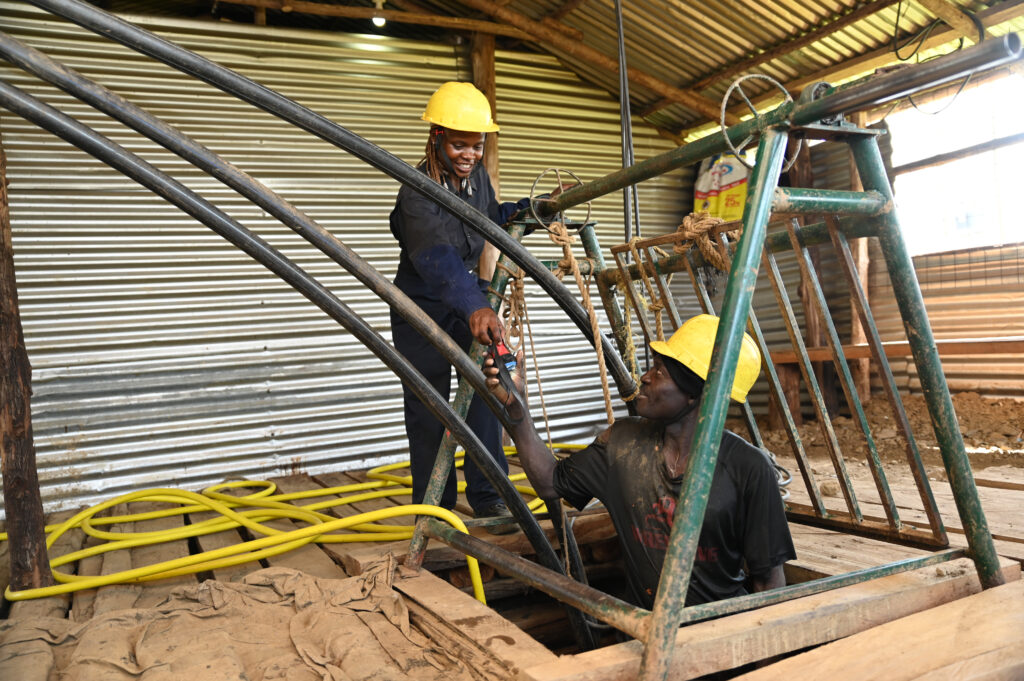
In 2023, Solidaridad continued to champion the empowerment of marginalized groups, with a special focus on women and youth, via the Gender Smart Villages innovation initiative. A total of 806 gender champions were mobilized to motivate households towards inclusive decision-making, aiming for transformative household socio-economic empowerment. To ensure the voices and needs of women and other marginalized communities are heard, gender committees were formed and actively engaged with power holders.
To guarantee that our inclusion initiatives were effective, they emphasised community mobilization, behaviour change and empowerment. This was achieved by deploying specific methodologies, such as Start Awareness Support Action (SASA!), Economic and Social Empowerment (EA$E), Engaging Men in Accountable Practices (EMAP) and Gender Action Learning Systems (GALS), all designed to confront and alter social norms that have restricted meaningful participation in value chains and access to the equitable benefits derived from them.
This focus on empowering marginalized groups, especially women in the Ugandan tea sector, culminated in the formalization of the Women in Tea Association. This body has played a crucial role as an active contributor to the drafting and shaping of the national tea policy, and demonstrates the tangible impact of targeted empowerment initiatives on policy and industry standards.
Solidaridad leveraged the Climate Adaptation Index (CAI) tool as part of the Climate Heroes project to conduct assessments for coffee farmers in Uganda, focusing on evaluating hazards, vulnerabilities and adaptation practices. The assessments help identify the best practices and interventions on soil and water management, water efficiency, pest control and soil nutrients. To ensure the sustainability of these practices, progress on increasing resilience is periodically monitored throughout the project’s lifespan.
Initiatives to access international carbon markets were designed, encouraging smallholder farmers towards adopting sustainable, climate-smart agricultural practices, such as agroforestry. A collaborative effort with Rabobank/ACORN enabled a learning session on the ACORN model, bringing over 40,000 coffee farmers from Kenya and Uganda onto the ACORN platform through the Climate Heroes and Traceable Organic Coffee from Kenya (TRACE Kenya) projects.
Across the region, Solidaridad leveraged its existing projects as a foundation to gather evidence on the viability of carbon farming within the cereals, food crop, and tea value chains. This information will be instrumental in guiding the expansion and replication of these initiatives. Furthermore, Solidaridad’s participation in a national consultative meeting on carbon regulations in Kenya led to key submissions aimed at enhancing the regulatory environment. Our recommendations included incorporating agriculture into the Kenya carbon registry, streamlining the approval process for carbon market projects, clarifying issues related to benefit sharing, and defining offences and penalties.
In 2023, Solidaridad undertook a financial needs assessment survey for farmers participating in the Climate Heroes project. The survey in Kenya utilised the pre-financing tool designed for farmers, whereas in Uganda, it relied on key informant interviews. This tool encompassed five areas: personal information, income sources and usage, experiences with savings and credit, and aspects of tree farming. The primary aim was to identify the financial requirements of farmers and devise strategies to meet these needs in alignment with the project’s objectives. The assessment revealed that the main challenges farmers face include the high cost of fertilisers and planting materials, which significantly increases production expenses and impacts the productivity of low-income farmers. It also showed a trend of small-scale land ownership, with 70 percent of farmers owning between 1-3 acres. 75 percent of farmers rely on personal savings for financing, with about 8 percent turning to friends, relatives, informal lending and formal banking institutions. Additionally, the majority of farmers (66.8 percent) inherit their land, with others purchasing or leasing it.
Based on these insights, Solidaridad developed a carbon finance product for farmers in Kenya and Uganda. The innovative loan product delivered in the form of shade tree seedlings suited to the farmers’ ecological zones and carries zero interest. The loan repayment is facilitated through carbon credits generated by the farmers from these tree seedlings. The roll-out of this loan product was managed by ECA Agribusiness Solutions, a social enterprise associated with Solidaridad in East and Central Africa, benefiting 1,725 farmers in Kenya and 21,326 farmers in Uganda.
In Tanzania, within the coffee value chain, a blockchain-based transparency tool, SoliChain, was developed and tested, gathering valuable feedback from government bodies and participating cooperatives. This iteration will offer improved traceability features, a more user-accessible interface and experience, and will extend its traceability capabilities to include the horticulture and tea value chains.
Using digital IDs, Solidaridad enrolled 30 percent of coffee farmers in Kenya and Uganda onto the Z’Wardy platform, a rewards system promoting sustainable farming practices. Farmers earn points for training attendance and sustainable practice adoption that are redeemable for essential farming tools and inputs, encouraging the adoption of eco-friendly methods. Additionally, as part of the Fair Value Outcomes project, the Responsible Mineral Credit (RMC) platform was developed. This initiative allows downstream businesses to support ethical Artisanal and Small-scale Mining (ASM) gold operations by providing credits for every kilogram of gold that is mined responsibly. The RMC platform details the volume of gold produced responsibly at both the mining level and at regional levels, fostering responsible mining practices and aiding miners.
To bolster our data management capabilities, Solidaridad transitioned to Uwanjani, a sophisticated enterprise field management system. This platform enhances the efficiency of regional and country teams in handling beneficiary identifications, incorporating enumerators and lead farmers, merging offline data collection tools, visualising data, organising project events, and documenting project activities. It marks a significant step in our commitment to advance our data management systems.
Organization & governance
A strong foundation
Transforming people, processes and technologies to catalyse- impact
In 2023, Solidaridad East and Central Africa strategically invested in revitalizing support functions essential for success. From HR processes to financial excellence, project monitoring and evaluation practices, integrity, inclusivity and innovative business development, our focus on improving the efficiency of our people, processes and technologies lays the foundation for another year of transformative impact.
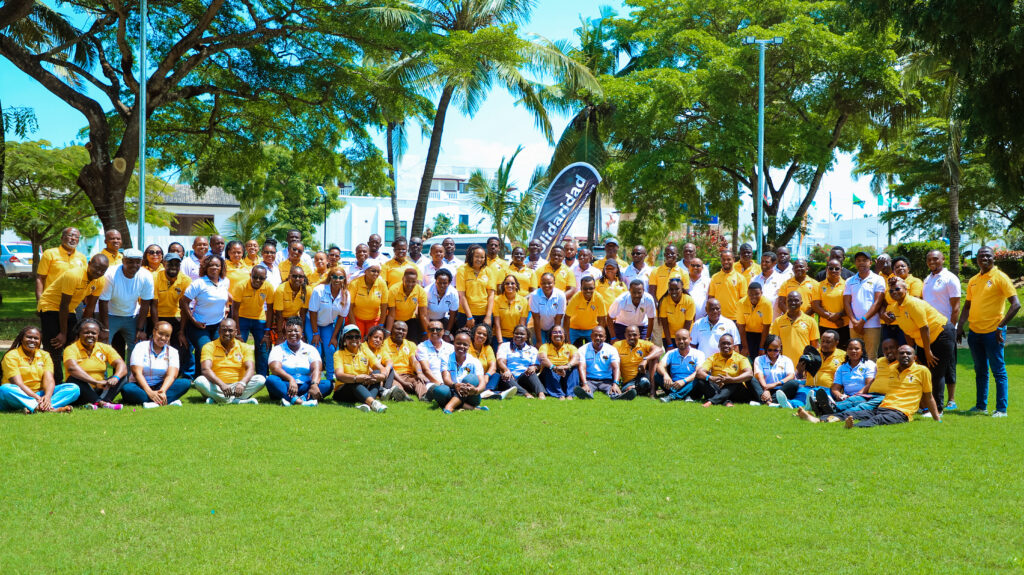

In East Africa, Solidaridad had a total workforce of 103 dedicated staff. The diverse composition of our team reflected our commitment to inclusivity. The gender distribution, with 47 percent female and 53 percent male staff, exemplifies our dedication to fostering a balanced and equitable work environment. The country breakdown was as follows: Kenya had 41 staff of whom 56 percent were female; Uganda had a team of 23 staff of whom 48 percent were female; Tanzania had 21 staff of whom 43 percent were female; while Ethiopia had 18 staff of whom 28 percent were female.
Diversity, Equity and Inclusion
Our commitment to fostering a diverse and inclusive workplace took centre stage in 2023, with the HR unit proactively addressing the need for gender balance. A strategic approach was employed that resulted in the internal promotion and external recruitment of female staff to key leadership, management and decision-making roles. This not only demonstrated our dedication to gender equality but also contributed to building a workforce that is well-balanced and equitable. The efforts made to promote female staff into leadership roles have significantly enhanced the overall diversity of our organisational structure.
Learning and Development
Our approach to learning and development saw a transformative shift in 2023, as initiatives evolved to become more personalized and adaptive. In response to the evolving needs of our staff, we placed a notable emphasis on developing leadership skills, with a specific focus on fostering a diverse leadership team. The introduction of the Leadership Masterclass: Coaching for High Performance was a milestone achievement. It provided our leaders (including country managers and heads of department) with essential skills to thrive in their roles. This initiative not only enhanced individual capacities, but also contributed to the creation of a leadership team that reflects the rich diversity within our organisation.
Ethical Practices and Transparency
Strengthening our commitment to ethical business practices and integrity within HR processes was a cornerstone of our endeavours in 2023. The HR team took significant steps to ensure transparency in various HR processes, including hiring, online performance evaluations and promotion processes. This commitment was not only communicated internally, but shared openly with all staff to ensure that clarity, fairness and accountability became the pillars of our organizational ethos. This focus on ethical practices has contributed to a workplace culture rooted in trust and responsibility.
Team Building
The year 2023 saw a vibrant three day team-building event that brought together about 100 staff from our four countries of operation for meaningful interaction and collaboration. This initiative was designed to enhance communication, foster team spirit, and create a positive work environment. The success of this event was a testament to our dedication to building strong internal relationships and promoting a cohesive organisational culture. By investing in team building, we are nurturing a work environment that encourages collaboration, innovation and mutual support.
Implementation of BambooHR:
One of the transformative moments of 2023 was the successful adoption of BambooHR. This robust human resources management information system (HRMIS) has significantly improved HR analytics and streamlined various HR processes. The seamless integration of BambooHR has brought efficiency to tasks such as data management, reporting, timesheet management, leave management and employee self-service. The implementation of this system has not only enhanced decision-making processes within the HR domain, but it has had a positive impact on the overall effectiveness of our HR operations. It stands as a testament to our commitment to staying at the forefront of technological advancements in HR management.
In 2023, Solidaridad prioritized strategic partnerships and deeper engagement to attract and strengthen collaboration with new and existing donors, partners and governments. As part of our continued business development efforts, we submitted 33 concepts and proposals for funding. We successfully secured the National Oil Palm Project (NOPP) funded by the Ministry of Agriculture, Animal Industry and Fisheries of Uganda and IFAD and the Creating Shared Value in the Maize Value Chain (CSV) project funded by the Louis Dreyfus Foundation (LDF). Our total project portfolio included 37 projects with a total budget of 9.9 million euros as of December 2023.
To advance our position as a value chain development think tank, we built partnerships and formalized engagement with organizations like E4Impact to enhance our agribusiness and entrepreneurship interventions, while leveraging funding from new donor agencies, including Italian-based donors. To strengthen our presence, expand our portfolio and tap into existing development funding opportunities in Central Africa, we initiated collaborations with the African Chamber of Commerce in Cameroon.
Through the Dutch Ministry of Foreign Affairs funded RECLAIM Sustainability! programme, we were able to commission four fair value distribution surveys for coffee, gold, tea and food products value chains in Kenya and Uganda. Findings provided insights into the specific bottlenecks farmers, workers and miners face in accessing and sustaining equitable markets for, and receiving benefits from, their produce and/or services offered. Preliminary findings provided a basis for sector-led dialogues including multi-stakeholder platforms on policies at community, national and regional levels.
Through our partnership with media civil society organizations — Water and Environment Media Network Uganda and Kenya Environment and Science Journalists Association — we also conducted multi-faceted community and media campaigns to provide platforms to amplify citizens’, producers’ and stakeholders’ voices. The campaigns were held through local barazas (meetings) featured in media — local radio and national television, newspapers. In addition to raising awareness on fair pricing, incomes and wages, the campaigns demanded decent and safe work, environmental protection — including mercury-free gold mining — gender and social inclusivity and enabling policies.
In 2023, the survey findings will be analyzed and key recommendations packaged into policy briefs for use in high-level lobbying and advocacy with policy makers, governments and other actors in the value chains. The policy briefs will also inform the agenda for multi-stakeholder platform dialogues.
Timely and effective communication remained crucial for the advancement of our overarching goal and mission. Throughout 2023, our communications unit played a pivotal role in strengthening our positioning and reputation at the country, regional and global levels. As a result, Solidaridad attained notable milestones by employing strategies for media engagement, awareness and advocacy campaigns, impactful digital communications, and effective storytelling. Our targeted communications initiatives facilitated ongoing engagement with our key stakeholders (both internal and external), donors, and the public, providing updates on our organisational and programmatic efforts, achievements and positions.
The communications unit continued to amplify the visibility of Solidaridad’s brand, voice and messaging through national, regional and grassroots media outlets throughout 2023. Through our growing partnerships with media, we achieved over 100 media outreaches that resulted in an estimated 10 million views through online, TV, radio and print media. The substantial growth in our media partnerships and media presence reflected our growing brand awareness and credibility. Importantly, this allowed us to directly and indirectly (through our project partners, CSOs and beneficiaries) promote and persuade value chain actors including farmers, workers and miners to embrace sustainable production practices. Our outreaches also facilitated us to lobby for effective policies and catalyse change geared towards overall sustainable development, inclusivity and profitability.
Throughout the year, we championed and supported thematic campaigns geared towards fostering sustainable supply chains. The campaigns, which were driven by and/or centred on producers’ (farmers, workers and miners) issues were held during key international days among them International Women’s Day, International Youth Day, International Tea Day, International Coffee Day, World Food Day and the 16 Days of Gender Activism against Sexual and Gender-Based Violence. Campaigns were implemented on digital platforms and at the grassroots to reach our diverse audiences with key messaging and relevant calls to action. Collaboration with key stakeholders in the country and/or grassroots campaigns enabled us to reach new audiences and achieve external endorsement from top government representatives in countries like Kenya.
To contribute to sector dialogues, we secured speaking slots and/or side events in international and regional events and forums among them the 2023 Africa Climate Week, COP28, OECD Forum on Responsible Mineral Supply Chains, FAO World Food Forum, RSB Annual conference, 5th International Congress on Planted Forests, Safe and Decent Work Conference and the African Fine Coffees Association (AFCA) conference among others. Through these forums, we showcased our innovative value chain development solutions, and milestones and presented our positions/calls to action to different actors in our supply chains.
Additionally, we invested in digital communications to amplify our impact with our target audiences and the general public. Among these initiatives, we implemented strategic online campaigns, dynamic social media engagement and innovative content creation. As a result, our digital footprint expanded, fostering brand awareness and support for our initiatives.
Awards and recognitions:
- Solidaridad Tanzania was awarded the Shield Trophy as one of the substantial contributors to the tea sub-sector development in Tanzania in the area of Voluntary Sustainability Standards training, farmers certification, and market linkages for tea farmers.
- Solidaridad East and Central Africa also clinched the Tech for Good Impact Award, presented by Zendesk, in recognition of our commitment to advancing social causes. This award will propel sustainable production, bolster climate resilience, and foster gender and social inclusivity among 1,000 smallholder coffee farmers in Kenya, leveraging digital advisory services.
- In 2023, Kenya received excellent recognition from TerraFund for the Shade For Vegetables (SAVE) Project. The #SAVEProject will empower 2,000 smallholder farmers in Nyandarua County, Kenya. It is a six-year project that aims to integrate 160,000 trees of diverse species into vegetable farming systems bordering catchments and watershed areas. The project aims to restore 250 hectares of degraded catchments of Oljororok and Ndaragwa in Nyandarua County by 2029.
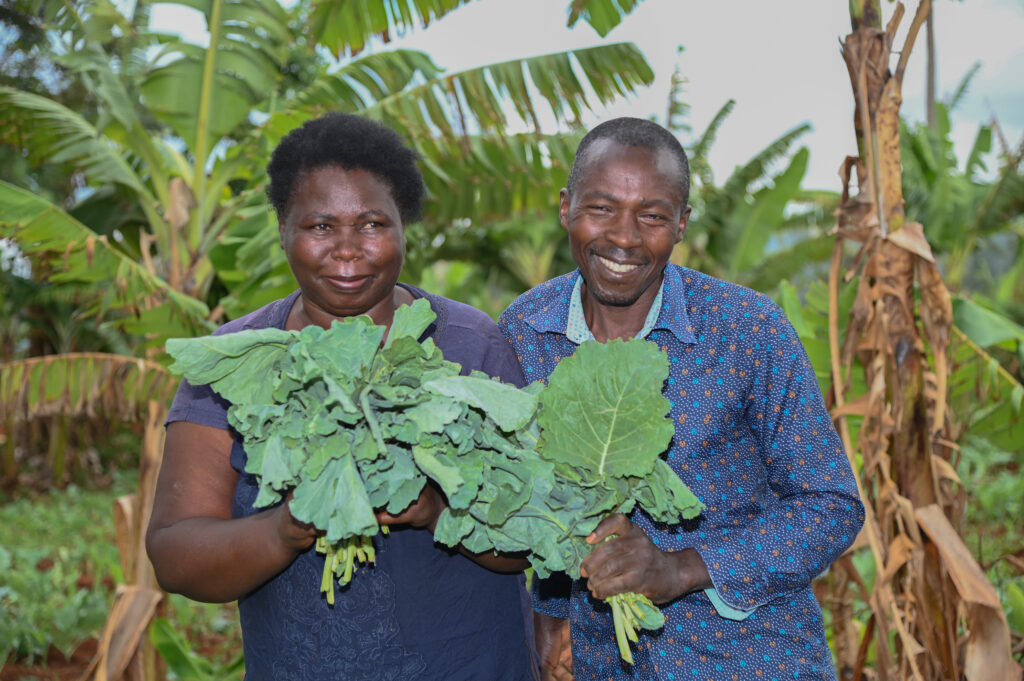
During the year, Solidaridad conducted a mid-term review for the Dutch Ministry of Foreign Affairs funded RECLAIM Sustainability! programme in Ethiopia, Kenya, and Uganda. The evaluation involved five learning and reflection sessions with key stakeholders from the coffee, tea, food products, gold, cotton and textiles sector. The qualitative methodology provided stakeholders with a unique opportunity to participate in project evaluation and provide feedback to shape the design and implementation of the current and future project. The mid-term evaluation approach was lauded as an inclusive methodology and adopted for existing and future project evaluations. One of the key conclusions indicated that through capacity building, the build-up of evidence, and the amplifying of voices through multi-stakeholder platforms (MSPs), the programme had established a good foundation from which to highlight the plight of farmers, workers and miners to other value chain actors.
In Ethiopia, we conducted the end-of-project evaluation for the European Union funded Bottom Up! project, whose goal was to create a sustainable cotton and textile value chain in Ethiopia. Among the key findings were that ginneries that complied with Cotton Made in Africa (CmiA) and Better Cotton Initiative (BCI) standards and sector associations promoted sustainable environmental technologies. It appears that despite the difficulties Bottom Up faced during its implementation period, due to events related to the COVID-19 pandemic and the war in Tigray, the project was relevant to the context of the needs and aspirations of the textile industry in Ethiopia.
In 2023 we carried out a mid-term evaluation of a European Union financed coffee project in Tanzania and noted a 13 percent increase of cherry output per tree per season from the baseline. The contributing factors to the increased average yield per tree included adherence to good agronomic practices (GAP), specifically pruning, fertilisation and the proper use of pesticides.
During the baseline studies for the Dutch funded Pathway to Prosperity project in Kenya and Tanzania, it was noted that the majority of the farmers had been indirectly reached by either the Practice for Change or other European Union funded programmes, and therefore had started to adopt various models to address climate change and the loss of soil fertility. Overall, manure application (86 percent), shade trees (75 percent) and agri-waste coffee management (60 percent) were the most adopted climate-smart adaptation measures. Similarly, the baseline research results for Acting Now for Food Security and Resilient Food Systems project in Ethiopia and Kenya indicated that 47 percent of farmers reported that farm income had declined compared to the previous year. On the other hand, 40 percent noted an unchanged income, while 13 percent pointed to an increase in farm income. Declining incomes were associated with climate change and a lack of diversification initiatives at the farm level.
Solidaridad East and Central Africa has fully adopted KoboToolbox for all data collection needs. The software has enabled seamless data collection, analysis and storage. We also rely on the data points indicated in the data model while carrying out farmer profiling, baselines, mid-term reviews (MTRs), and final evaluations.
Following the implementation of our Whistleblower Protocol in 2021, a regional Integrity and Inclusivity team led by an Integrity Advisor was constituted to provide leadership and oversight the implementation of integrity-related efforts — risk prevention, detection and response. In addition, Solidaridad nominated Persons of Trust in Ethiopia, Kenya, Tanzania and Uganda to facilitate communication and incident reporting at the country level to enhance adherence to our Code of Conduct. To foster open discussions on and mitigate potential breaches, we also provided training on the Whistleblower Protocol and Code of Conduct.
A total of 84 staff were also sensitized on the incidence reporting protocol and flowchart. Two cases of conflict of interest were reported and appropriate corrective measures taken. In the same period, Solidaridad East and Central Africa and Solidaridad Southern Africa teams collaborated to develop joint inclusivity action plans. Joint implementation is scheduled to commence in 2023.
Finance
Solidaridad East & Central Africa’s secured budget was EUR 9.5 million in 2023, and has successfully raised EUR 8.1 million for 2024. In 2023, there was a planned increase of EUR 10,000 in the regional reserves to stand at EUR 1,127,591.

Secured income in 2023 was derived from the European Union, the Dutch Ministry of Foreign Affairs, Dutch National Postcode Lottery (Dreamfund), Danida and Syngenta, among others.

In 2023, Solidaridad East and Central Africa’s operations involved a significant financial commitment, with a total expenditure amounting to 9.7 million. The expenditure reflects the scale and scope of efforts to address the unique challenges faced by the communities within the sustainable agricultural, industry and mining practices sectors, and highlights Solidaridad’s role as a key player in the region’s sustainable development landscape.
The full audited annual statements will be added as soon as they are available
Solidaridad East and Central Africa Expertise Center (SECAEC)

